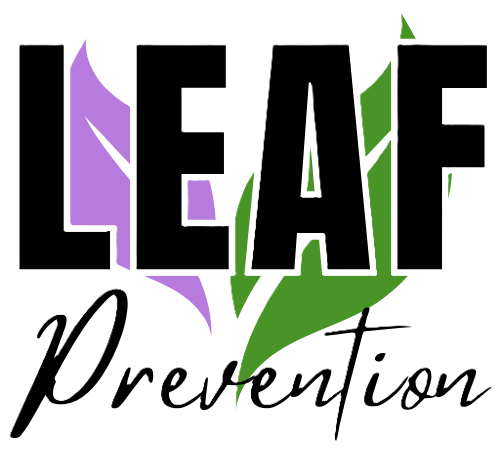

Blog Posts
E-cigarette (or vape) use has increased in the last several years, especially among younger smokers. While the risks of cigarette smoking are well known, e-cigarettes are sometimes viewed as a “better” alternative.
Popular myths (and vape advertisers) have claimed that vaping can help smokers quit traditional (or “combustible”) cigarettes. Is it true?
Evaluating E-Cigarettes’ Safety
Combustible cigarettes contain many harmful chemicals. How do e-cigarettes stack up?
While e-cigarette liquid does typically contain fewer total ingredients, vapes aren’t completely off the hook. Several of the flavorings and additives in the e-liquid may be safe for oral ingestion, but heating those same chemicals and inhaling them in aerosol form is more dangerous.
Vitamin E is one example: this generally safe compound causes lung damage when it is heated and inhaled (Yale Medicine n.d.).
Diacetyl and acrolein are two other common e-cigarette ingredients. These compounds are known to damage the lungs. Formaldehyde is also used frequently in vape e-liquid, and its ingestion leads to lung and heart disease (Johns Hopkins Medicine 2024). Heavy metals, volatile organic compounds (VOCs), and ultrafine particles can also degrade lung function (CDC 2024).
Time is another consideration—we’ve had many years of experience with and research on traditional cigarettes. E-cigarettes have only been popular for several years; experts don’t yet know all the potential long-term effects.
Cheap, High-Strength, and Easily Available Vape Products
Although not all vapes contain nicotine, many do, and nicotine is a highly addictive substance. Nicotine works on the reward system of the brain to encourage the smoker to seek more and feel rewarded for doing so.
Using a lower concentration of nicotine could help a person who smokes to scale back, but many vape products contain high levels of nicotine.
Centers for Disease Control (CDC) states that, “In March 2022, products with a nicotine strength of 5% or more made up 81% of total e-cigarette unit sales. In recent years, the price of high-nicotine products decreased or stayed the same while the price of low-nicotine products increased” (CDC 2024).
High-strength products have also become cheaper in the last few years; more nicotine is now available at a lower price—and with more enticing flavors (Truth Initiative 2024). It’s a perfect storm for young people who are prone to experimenting—and whose developing brains are more affected by nicotine.
What Really Helps a Smoker Quit?
The US Food and Drug Administration (FDA) has approved several different “quit aids” for consumers who want to stop smoking; vaping is not an FDA-approved way to quit smoking. At this point, there are not enough studies to back up the claims that vaping could help a smoker quit (NIDA 2020).
For a list of approved quit aids, check this list from the FDA.
It is also not recommended that current non-smokers begin vaping.
Experts recommend building a quit plan and consulting with a healthcare provider about medications that can aid quitting, such as patches, gums, lozenges, and many other options (FDA 2022).
Distraction can be a helpful way to cope with the urge to smoke, as well as finding safe substitute behaviors, such as using toothpicks, straws, paper clips, or other fidget toys (CDC 2024).
It may be motivating to familiarize yourself with the benefits of quitting. The American Cancer Society provides a timeline here, detailing what happens from 20 minutes after quitting all the way up to 15 years after.
Many quitters also center themselves around why they want to quit. What positive things could you do if you quit? How could your quality of life be better? Do you want to run a marathon or play outside with your grandchildren? Positive incentives often work better than scare tactics or punishments.
If you’d like to learn more about how to quit smoking, contact LEAF at (607) 432-0090! Our staff can connect you with resources to help you lead a healthy lifestyle.
Sources:
American Cancer Society. “Health Benefits of Quitting Smoking Over Time.” Accessed July 11, 2024. https://www.cancer.org/cancer/risk-prevention/tobacco/benefits-of-quitting-smoking-over-time.html.
American Heart Association. “Is Vaping Better Than Smoking?” Accessed July 11, 2024. https://www.heart.org/en/healthy-living/healthy-lifestyle/quit-smoking-tobacco/is-vaping-safer-than-smoking.
CDC. “E-Cigarettes (Vapes).” Smoking and Tobacco Use, May 24, 2024. https://www.cdc.gov/tobacco/e-cigarettes/index.html.
CDC. “Tips For Quitting | Quit Smoking | Tips From Former Smokers | CDC,” February 3, 2024. https://www.cdc.gov/tobacco/campaign/tips/quit-smoking/tips-for-quitting/index.html.
CDC. “Why Youth Vape.” Smoking and Tobacco Use, June 17, 2024. https://www.cdc.gov/tobacco/e-cigarettes/why-youth-vape.html.
Johns Hopkins Medicine. “What Does Vaping Do to Your Lungs?” June 20, 2024. https://www.hopkinsmedicine.org/health/wellness-and-prevention/what-does-vaping-do-to-your-lungs.
National Institute on Drug Abuse (NIDA). “Vaping Devices (Electronic Cigarettes),” January 8, 2020. https://nida.nih.gov/publications/drugfacts/vaping-devices-electronic-cigarettes.
Shmerling, Robert H. “Can Vaping Damage Your Lungs? What We Do (and Don’t) Know.” Harvard Health, September 4, 2019. https://www.health.harvard.edu/blog/can-vaping-damage-your-lungs-what-we-do-and-dont-know-2019090417734.
Truth Initiative. “Bigger, Stronger, and Cheaper: Disposable e-Cigarettes Have More Nicotine and Are More Accessible than Ever.” Accessed July 11, 2024. https://truthinitiative.org/research-resources/emerging-tobacco-products/bigger-stronger-and-cheaper-disposable-e-cigarettes.
US Food and Drug Administration (FDA). “Want to Quit Smoking? FDA-Approved and FDA-Cleared Cessation Products Can Help,” July 21, 2022. https://www.fda.gov/apology_objects/abuse-detection-apology.html.
Yale Medicine. “E-Cigarette, or Vaping Product, Use Associated Lung Injury (EVALI).” Accessed July 11, 2024. https://www.yalemedicine.org/conditions/evali.